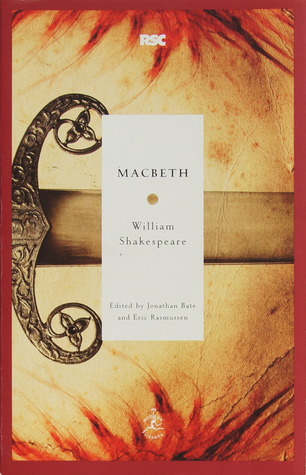More on this book
Community
Kindle Notes & Highlights
Macbeth himself is great in action but not in judgment. Give him a task on the battlefield and he will carry it through with aplomb. But give him words and he will be first easily led, then hesitant.
For Aristotle, hamartia, the thing that precipitates tragedy, is not a psychological predisposition but an event—not a character trait but a fatal action.
We are creatures bound by time but always longing for another time.
Macbeth is the loneliest of the tragedies because the Macbeths, having begun the play as one of the few happily married couples anywhere in Shakespeare, drift apart and each dies profoundly alone.
There is no Horatio or Earl of Kent to “Give sorrow words” on behalf of the audience. Only in this play could Shakespeare have described life as a walking shadow, a poor player, a tale “Told by an idiot, full of sound and fury, / Signifying nothing.”
A further complication is that the only surviving printed text of Macbeth (found in the First Folio) seems to represent the play not as it was written by Shakespeare, but as it was revised for later performance, probably by the younger dramatist Thomas Middleton.
It is highly probable that the whole of Act 3 Scene 5 and the Hecate portions of Act 4 Scene 1 are Middletonian insertions in the Shakespearean script.
They have the self-contained quality of inserted scenes. They are put in to beef up the witchcraft business and spice the play with a couple of song-and-dance routines.
Similar to reviewers removing and adding so many elements to an academic paper that the end rest is more similar to Frankenstein's creation not the originally submitted paper
In Shakespeare’s original text, the sisters may have been morally ambiguous creatures who do nothing more than give voice to mysterious and equivocal “solicitings,” oracular prophecies. Middleton may then have converted them into the kind of overtly evil singing and chanting witches who had appeared in Jonson’s Masque of Queens and about which he wrote his own The Witch. He also doubled their number and brought on Hecate and assorted attendant spirits, including one in the shape of a cat. Crude practitioners of black magic, they are unequivocal almost to the point of comedy. This said, we
...more
Shakespeare’s sisters are elusive and equivocal. They are more like classical Fates than vernacular witches. The term “weird” at this time referred specifically to the Fates and the power of prophecy. In order to suggest something of this nature, and to avoid the modern vernacular associations of “weird,” our text adopts the Folio-based spelling “weyard,” suggesting “wayward, marginal.” The sisters are women on the edge: between society and wilderness, culture and nature, the realm of the body-politic and the mysteries of the hieratic.
Fair is foul, and foul is fair: Hover through the fog and filthy air.
Why do you dress me in borrowed robes?
O, horror, horror, horror! Tongue nor heart cannot conceive67 nor name thee!
Double, double, toil and trouble10: Fire burn, and cauldron bubble.
By the pricking44 of my thumbs, Knock Something wicked this way comes. Open, locks, whoever knocks.
What, you egg?
Angels are bright still, though the brightest25 fell:
Out, damned spot! Out, I say!— One: two33: why then, ’tis time to do’t.— Hell is murky.— Fie, my lord, fie, a soldier, and afeard? What need we fear who knows it, when
Here’s the smell of the blood still. All the perfumes of Arabia will not sweeten this little hand. O, O, O!


